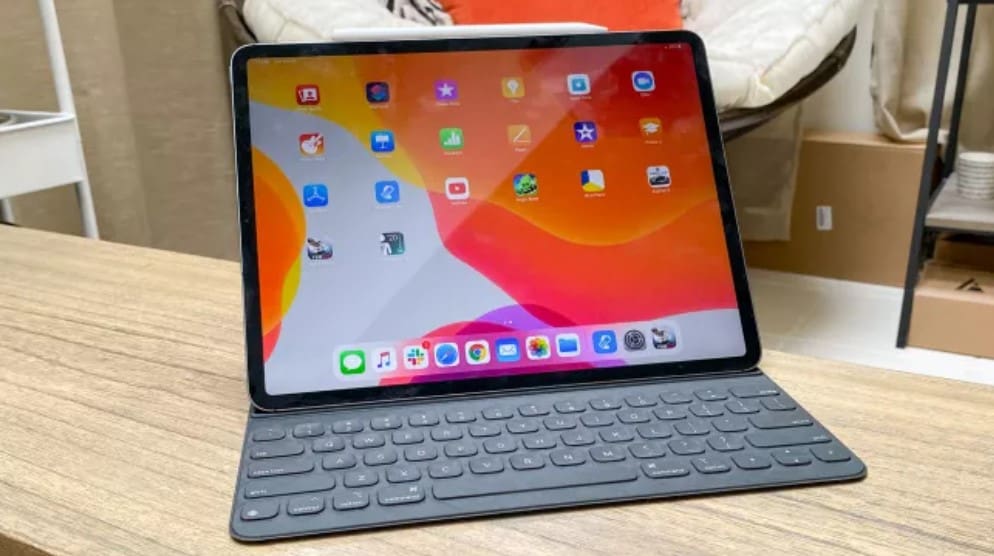The next iPad Pro could come with an upgraded take on the A14 Bionic chip the iPhone 12 is expected to have, potentially giving it the power to take on fully-fledged laptops.
A reasonably reputable tech leaker on Twitter going by the name of Fudge noted that the next wave of iPad Pro tablets will come with the A14X chip. Fudge didn’t note where this information came from or any expected specs of the A14X chip, but it’s likely to a powered-up version of Apple’s next-generation A-series chipset that will almost certainly debut in the next iPhone.
An upgraded A14 Bionic could promise laptop-beating performance in the next iPad Pro. That’s because the A14 Bionic is expected to be Apple’s first 5-nanometre chip. Leaked iPhone 12 benchmarks show that it could not only destroy rival Android phones on performance but also potentially challenge the power of Apple’s own MacBook Pro laptops.
The benchmark leak came courtesy of an alleged Geekbench 5 scorecard which appears to feature the A14 Bionic running at 3.1GHz. If the benchmark is to be believed, the chip’s processor managed a single-core score of 1,658 and a multi-core score of 4,612. Comparatively, the MacBook Pro 13-inch 2020 yielded a single-core score of 4,399 in our review.
So there’s a good chance that an upgraded take on the A14 Bionic in the form of the A14X could turn the iPad Pro into an absolute powerhouse of a tablet. That’s impressive, considering that the current iPad Pro is hardly a slouch.
In our testing, the iPad Pro 2020’s A12Z Bionic chip scored 4,720 on the multi-core benchmark and 1,126 on the single-core test in Geekbench 5, beating the Surface Pro 7’s score of 4,443 in the multi-core test. Considering the Surface Pro 7 is using Intel’s latest 10th Gen Core i5 CPU, the iPad Pro’s performance is especially noteworthy.
So if the A14 Bionic can beat the A12Z Bionic, an A14X-equipped iPad Pro could have enough performance to beat even some of our best laptops. And it could make a mockery of Android and Windows 10 tablet performance.

